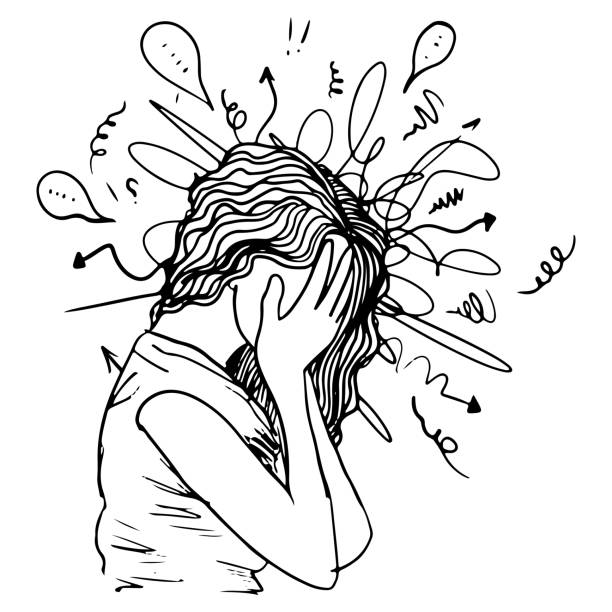
Anxiety, a natural response to stress, is an integral part of the human experience. However, when it becomes overwhelming and persistent, it can evolve into a debilitating condition that affects every aspect of a person’s life. In today’s fast-paced and demanding world, angst has become increasingly prevalent.
This article aims to delve into the complex world of anxiety, exploring its various forms, underlying causes, effects on mental and physical health, and most importantly, practical strategies to manage and overcome it.
Understanding Anxiety
Anxiety is a multifaceted emotional response characterized by feelings of unease, worry, and apprehension. It can manifest in various forms, including generalized angst disorder (GAD), social anxiety disorder, panic disorder, and specific phobias. While mild angst can be a helpful response in certain situations, chronic and intense anxiety can be overwhelming, leading to a reduced quality of life.
Causes and Triggers
The causes of anxiety are diverse and interconnected. Biological factors, such as genetics and brain chemistry, play a role in predisposing individuals to angst disorders. Environmental factors, including traumatic experiences, chronic stress, and upbringing, can contribute to the development of anxiety. Furthermore, societal pressures, unrealistic expectations, and the constant influx of information in the digital age can exacerbate anxiety.
Effects on Mental and Physical Health
Anxiety has far-reaching effects on both mental and physical well-being. Emotionally, it can lead to a constant sense of dread, restlessness, irritability, and difficulty concentrating. It can also trigger panic attacks, which involve sudden and intense surges of fear and physical symptoms like rapid heart rate, shortness of breath, and chest pain.
Physically, anxiety can manifest in a range of symptoms, including muscle tension, headaches, gastrointestinal issues, and sleep disturbances. Over time, chronic anxiety can weaken the immune system, increase the risk of cardiovascular problems, and contribute to the development of other health issues.

Effective Strategies for Managing Anxiety
- Mindfulness and Meditation
Practicing mindfulness and meditation can help individuals become more attuned to their thoughts and emotions, enabling them to respond to anxious feelings in a healthier way. Mindfulness techniques encourage staying present and non-judgmentally observing one’s thoughts, fostering a sense of control and detachment from anxiety-provoking situations.
- Cognitive Behavioral Therapy (CBT)
CBT is a widely recognized therapeutic approach for managing anxiety. It helps individuals identify and challenge negative thought patterns that contribute to angst, replacing them with more balanced and rational beliefs. Through CBT, individuals learn practical coping strategies and develop a toolbox of skills to manage angst triggers.
- Lifestyle Modifications
Simple lifestyle changes can have a significant impact on angst levels. Regular exercise, a balanced diet, and sufficient sleep contribute to overall well-being and can help regulate stress hormones. Avoiding excessive caffeine and alcohol consumption is also advisable, as they can exacerbate angst symptoms.

- Breathing Techniques
Deep breathing exercises can help calm the body’s stress response. Techniques like diaphragmatic breathing or the 4-7-8 method can reduce heart rate, lower blood pressure, and induce a sense of relaxation.
- Social Support
Building a strong support network is crucial for managing angst. Connecting with friends, family, or support groups provides a sense of belonging and an outlet for sharing feelings. Social interactions can also serve as distractions from anxious thoughts and promote feelings of positivity.
- Professional Help
For severe or persistent angst, seeking professional help is essential. Mental health professionals, such as psychologists or psychiatrists, can provide personalized treatment plans, including therapy and, if necessary, medication. It is important to remember that seeking help is a sign of strength, not weakness.
- Self-Compassion
Practicing self-compassion involves treating oneself with kindness and understanding, especially during times of angst. Avoid self-criticism and negative self-talk, and instead offer the same support to yourself that you would give to a friend facing a similar situation.

Conclusion
Anxiety is a complex and pervasive challenge that millions of individuals face daily. While it may feel overwhelming, it is crucial to remember that angst is manageable and treatable. By understanding its causes, and effects, and employing effective strategies, individuals can gain control over their angst thoughts and lead fulfilling lives. Whether through mindfulness, therapy, lifestyle adjustments, or seeking professional assistance, taking proactive steps to address angst can lead to improved mental and physical well-being. Remember, you are not alone in your struggle, and there is a path toward managing and thriving despite the challenges posed by anxiety.





